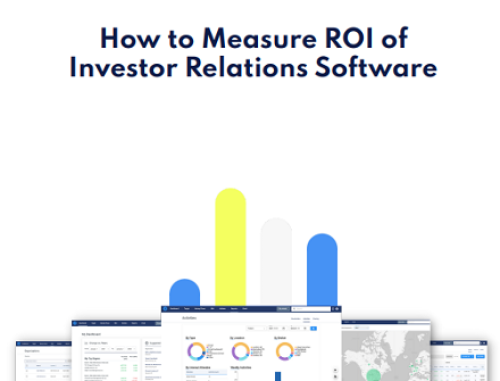As 2024 gets underway, IROs are already grappling with the issues that will define the next 12 months for them. The coming year is one already promising a large degree of change, from shifting political landscapes in the US and the UK with expected leadership elections through to new and refined regulations around ESG and other capital markets issues.
Constantly evolving technology is also likely to impact the role of IR professionals significantly, after AI dominated headlines in 2023. Below, IR Magazine speaks to leading IROs, academics and other industry experts to reveal the eight trends that will come to define the profession in 2024.
Political landscape
Lynn Antipas Tyson, executive director of IR at Ford, says: ‘I think the confluence of Covid-19 and post-Covid, coupled with the changing nature of the political environment, has added another dimension of complexity to IR.
‘I’ve been doing investor relations for more than 25 years and I don’t remember a time when the geopolitical environment – including in the US – has created so much uncertainty. Understanding those dynamics, understanding how those vectors impact your business, understanding the short-term and long-term choices a company has to make, given a set of realities, adds huge complexity.
‘Whatever is happening, though, it is still always about the basics of what investor relations is responsible for. And that is in aiding with capital formation for the company. Enhancing liquidity, reducing volatility. No matter what’s happening in the broader environment, those are the core functions of investor relations. Those are the things you need to focus on.’
Daniel Bohsen, corporate vice president and head of IR at Novo Nordisk, believes sustainability requirements are going to be top of mind. ‘For European companies, at least, the new Corporate Sustainability Reporting Directive (CSRD) requirements from the EU create a lot of work,’ he explains. ‘It’s important that it is handled in a way that works for the investor but also the company.
‘CSRD could be a huge task and we need to make sure it’s meaningful for the companies, too – that we do not end up spending a lot of time on something that’s [ultimately] not really creating value. CSRD is a heavy requirement, and across ESG there is still a need for standardization.
‘We’ve seen a steadily increasing number of requests from ESG investors in recent years. That also takes a lot of time and sometimes there are particular angles or data points where we have to say, No, we don’t provide that information in the same way that we cannot always provide the financial information an investor is asking for.’
Marina Calero, former group head of IR at Hyve and host of investor relations network IRO Coffee Break, said that she expects 'the IR bread and butter of transparency and clarity of message' to remain the most crucial parts of the role over the next 12 months.
‘I see 2024 as the year of increased direct engagement with the investment community' she adds. ' Capital markets activities are widely expected to pick up after a prolonged 'drought' period, which can be exciting but also exhausting for IR. Needless to say, it is certainly worth getting your defense packs and procedures dusted off if you haven’t already – particularly in the UK after private equity advances seen during 2023.
‘Elsewhere, ESG is now the old kid on the block, evolving from the regulatory, data management and reporting perspective and, in response, IR activities in this area will step up a notch.'
Looking beyond AI
Jill Chapman, senior vice president and head of IR & corporate development at Hilton, says much of her focus was on ‘technological advancements’ heading into the new year.
‘I hate to use the word AI because I think it can be overused, but maybe leaning into big data,’ she adds. ‘It goes back to being effective and efficient with your use of time. I think we can all do a better job of collecting and analyzing some data, whether it’s around sentiment or it’s targeted marketing, and use that to make a program more effective. It’s also about being more purposeful in how you’re using your time.
‘Marketing is always a big initiative for us at Hilton. I’ve had success and failures. There have been times when I’ve said I’m going to keep marketing in this area – I’m eventually going to get these folks to buy in. A decade later and that just hasn’t happened. And then I’ve had investors I’ve spent probably three years trying to convince, and might even have internally received feedback saying, Just let that go. But I kept at it and eventually wound up turning that round, which has resulted in some of our large investors, so I feel good about that.
‘But I think better collection and analysis of data could help you avoid some of those failures where you’re flying all over the world, convinced that some market is going to come to fruition and it doesn’t. I think it’s about better use of technology to gauge investor sentiment – specifically as it relates to targeted marketing and the changing dynamic of the investor landscape – and how that can be used to your advantage.’
Joseph Underwood, IR manager at Tennessee-based retail giant Tractor Supply Company, also says AI is going to play a pivotal role in the coming year.
‘AI is probably going to be a big play in it, [more specifically] how we harness that technology for productivity gains, but also [how we keep] pace with the investment community because it’s putting so much time and effort into it,’ he says.
Underwood highlights the critical important of shaping the company narrative moving forward as a second big theme over the next 12 months. In this context, he emphasizes the US investment community’s intense scrutiny of the macro environment, shifting consumer behavior and governmental impact on regional companies.
‘I think a lot of IR professionals are going to be trying to figure out how to [shape up the message in] 2024 because it is going to be a unique year not only with the macro environment but also with it now being an election year,’ he notes.
Anthony Palma, adjunct professor at the Fordham University School of Law and the Gabelli School of Business, foresees three pivotal themes steering the IR landscape in 2024.
He believes AI will continue to take center stage, particularly its adoption and ethical implementation, making it a key focus this year. He also highlights medical innovation as a significant space where there are ‘so many potential breakthroughs’. Lastly, Palma underscores the impact of deglobalization encompassing the disruption across international trade, capital flows and immigration.
Professional development
For Oskar Yasar, managing partner at London-based firm Broome Yasar, this year is all about IR continuing to push boundaries.
‘I don’t want to generalize because there are some really powerful and ambitious IROs out there, but [some of them] still think their role is just to communicate when the company reports or the accounts are finalized,’ he tells IR Magazine. ‘Actually [it] should be more than just delivering, [IR] should be part of the conversation: you should be at the top table when a decision is being made.’
While acknowledging an increase in IROs at executive tables compared with the past, Yasar emphasizes the need for further advancement. ‘I think 2024 should be an opportunity where people should first realize the importance of their role – it’s going to be another exciting year for IR,’ he says.
Smooch Repovich Rosenberg, founder and CEO of Smooch Unplugged, says IROs should not neglect their skillsets. ‘I think the predominant theme for 2024, and even beyond, will be a focus on intangible leadership attributes,’ she explains. ‘One specific tangible skill I believe to be critical is executives’ ability to be flexible and pivot in the moment.
‘The IR role is that of being a key adviser to management and the board and you have to be able to think quickly on your feet. So gone are the days when an IRO could be stuck in this linear track of, We have to do this in order to do the next thing. You have to have that flexibility in thinking and ability – I think that’s going to be a continuous theme in 2024 and beyond.’











